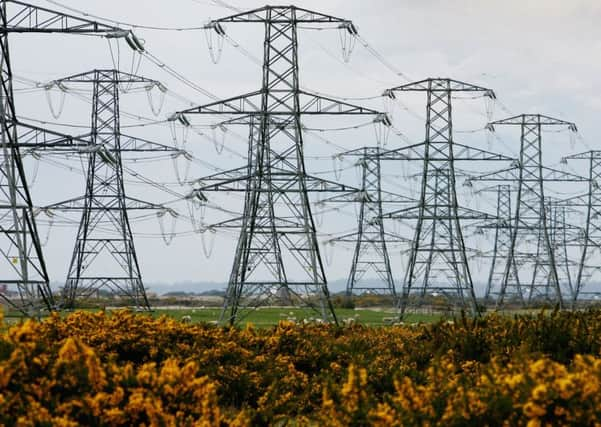YP Letters: Powering the way to electric car future


DAVID Craggs asks a very interesting question (The Yorkshire Post, August 4) about where is the electrical power going to come from in 2040 to power electric cars, particularly in winter.
There are many possible answers to the question, and the resolution will probably be a mixture of them. I’ll give an idea of a few.
Advertisement
Hide AdAdvertisement
Hide AdOur wind power capacity is already significant, and is due to greatly increase with massive offshore farms in the North Sea where the wind blows much more consistently than onshore.
We need to insulate our buildings, including our homes, far better, so that our central heating systems don’t have to continually “pump merrily away” to keep us warm but do the job with just an initial ‘burst’ twice daily.
The cost of solar power has been falling dramatically such that it will be the cheapest form of power across much of the world; for this to contribute to our problem will require batteries able to store far greater amounts of electricity than they can currently; development of such batteries is taking place.
We will also need either to store the energy across the seasons or have an international grid system. Various forms of long-term energy storage are being researched.
Advertisement
Hide AdAdvertisement
Hide AdAlso, the peak demand could be reduced in the following ways. At present, the many demands on the supply are unco-ordinated. Functions like central heating and car charging could be spread out by ‘smart’ control by the supplier; the customer could set their time requirements so that the supplier could supply their customers at different times within their requirements.
Car charging points are already in a variety of places so points could be provided at the work place with ‘smart’ systems spreading the load over the working day.
Working from home may become much more common, clearly reducing the energy used by cars.
And, of course, the amount of energy used by cars can be decreased by the public getting around by walking, cycling, and public transport much more.
Advertisement
Hide AdAdvertisement
Hide AdThe authorities can play their part by a much more determined policy to develop safe routes for those modes, and much better and cheaper train and bus services.
Trump’s real record
From: William Rees, Boroughbridge.
YOUR correspondent Richard Heller, writing about Donald Trump (The Yorkshire Post, August 5) claims that the President’s record after six months in office is worse than any other President in American history.
But if we judge presidents by their impact on the economy, Trump seems to be succeeding brilliantly. The unemployment rate in June in the US fell to 4.4 per cent, while wages for working people have started rising again, by 3.4 per cent per annum, for the first time in seven years. The Trump effect is creating new jobs in several areas of the American economy, particularly the energy sector. Meanwhile the US Stock Exchange has risen by almost 20 per cent since he took power.
Trump has had his problems, mainly caused by a pusillanimous Republican majority in the Congress, particularly when it comes to repealing Obamacare, and the hostility of the national media towards him. And there is no doubt that the special counsel Robert Mueller, whose brief is to investigate the supposed Russian collusion with Trump associates, but whose legal team is stuffed with committed Democrats, could cause him some trouble.
Advertisement
Hide AdAdvertisement
Hide AdMr Heller compares Trump with President Obama, claiming that the former President’s time was notable for the absence of scandal. That is true at a personal level, but not a political one. They mainly involved the use of Federal agencies for political ends, such as the Internal Revenue Service pursuing known opponents of the President and the Democrats.
Obama was also antagonistic to the United Kingdom, telling us we would have to go to the back of the queue for a trade deal, whereas Trump has made it clear that the UK will be at the front of the queue when Brexit is completed.
Mr Heller points out that Trump has low approval ratings, at slightly below 40 per cent, but he fails to point out that the leading Democrats – Senate Minority Leader Chuck Schemer and Minority Leader of the House Nancy Pelosi – have approval levels at 27 and 26 per cent respectively.
So, despite his wishful thinking, Mr Heller had better get used to having Donald Trump around for a long time yet.
The case for going vegan
From: Sue Lister, Dunnington, York.
Advertisement
Hide AdAdvertisement
Hide AdWHY is the thought of eating dogs and horses abhorrent in the UK but not elsewhere?
If you love your pet, why are you eating other animals?
If you don’t want blood on your hands, why are you asking other people to do your killing for you?
Have you visited a factory farm and witnessed the overcrowded misery that will end up on your plate? Why are you allowing cows to be turned into baby-making machines to produce milk for you to enjoy your butter or your cheese?
These are the questions that caused me to investigate and then adopt a vegan diet. And I, and millions of others, are thriving on it.
Advertisement
Hide AdAdvertisement
Hide AdAlternatives to meat and dairy are now common in health food shops and supermarkets. Have you tried rice milk, soya milk, coconut milk, almond milk, hazelnut milk, flax milk, hemp milk, quinoa milk? They won’t contain the added hormones and antibiotics of cow’s milk.
Mega dairies and all factory farming is inhumane – it deprives animals of their freedom and natural habitat.
It’s our choices that lead market demand and can alter our food production to be kinder and healthier.